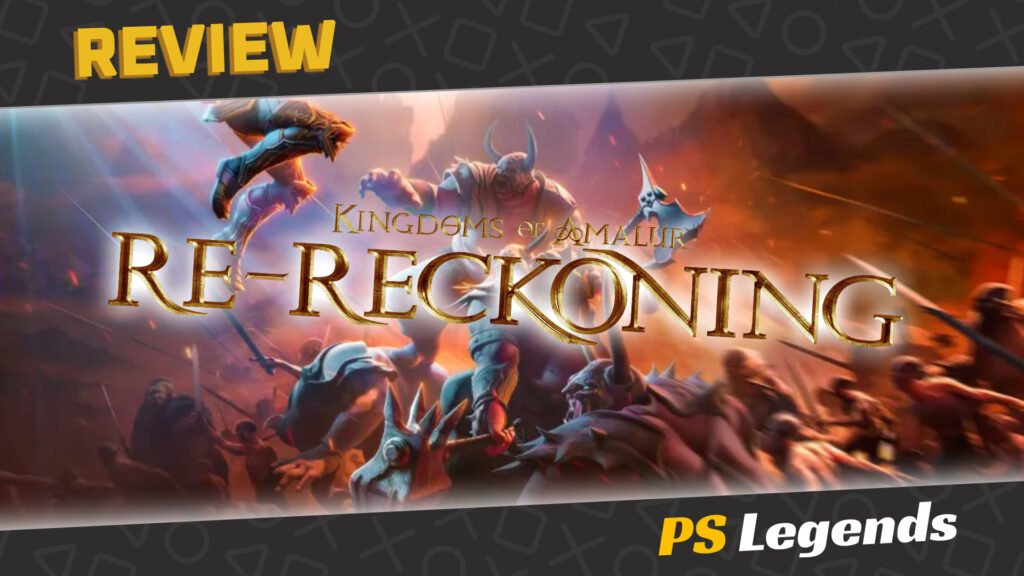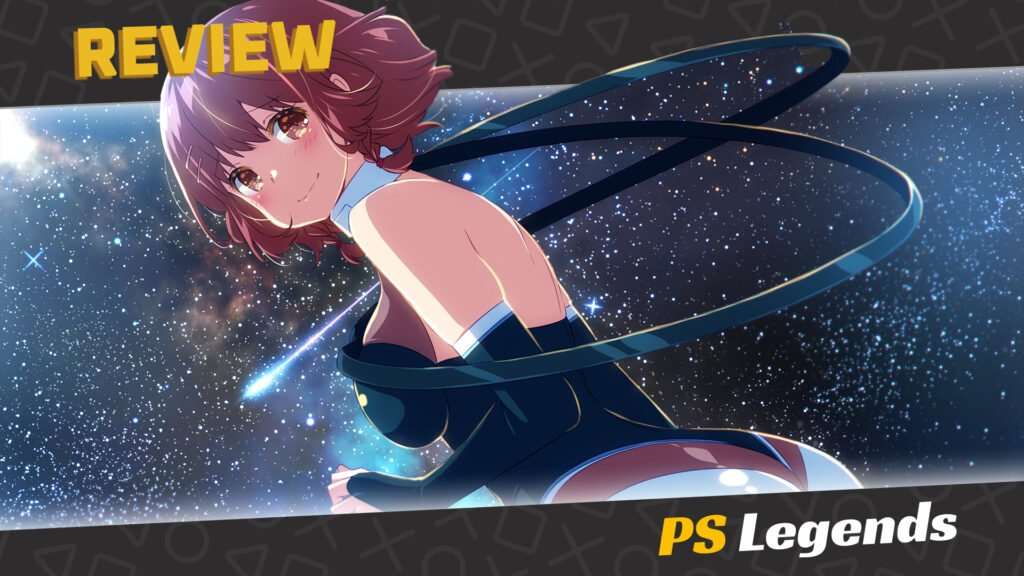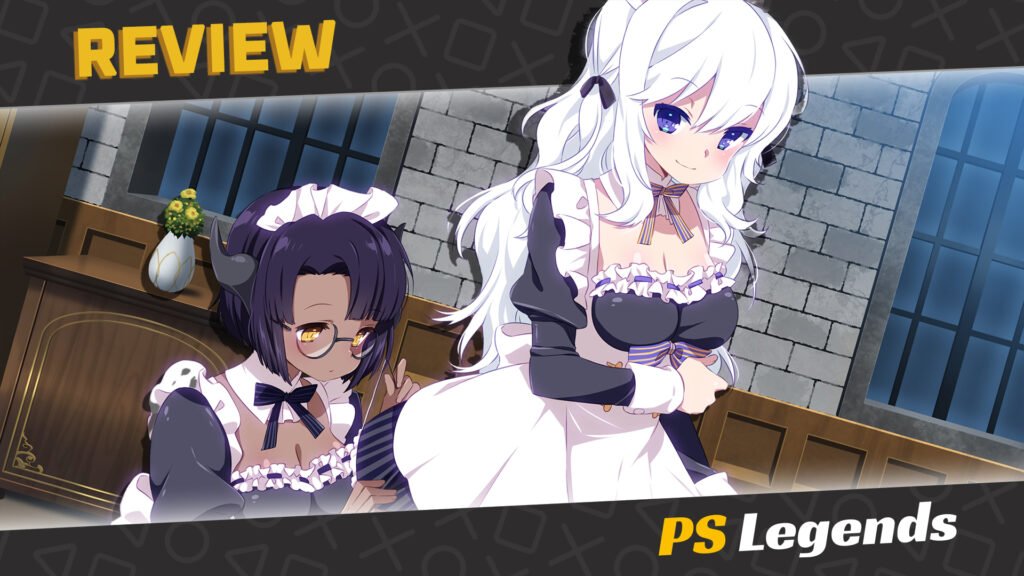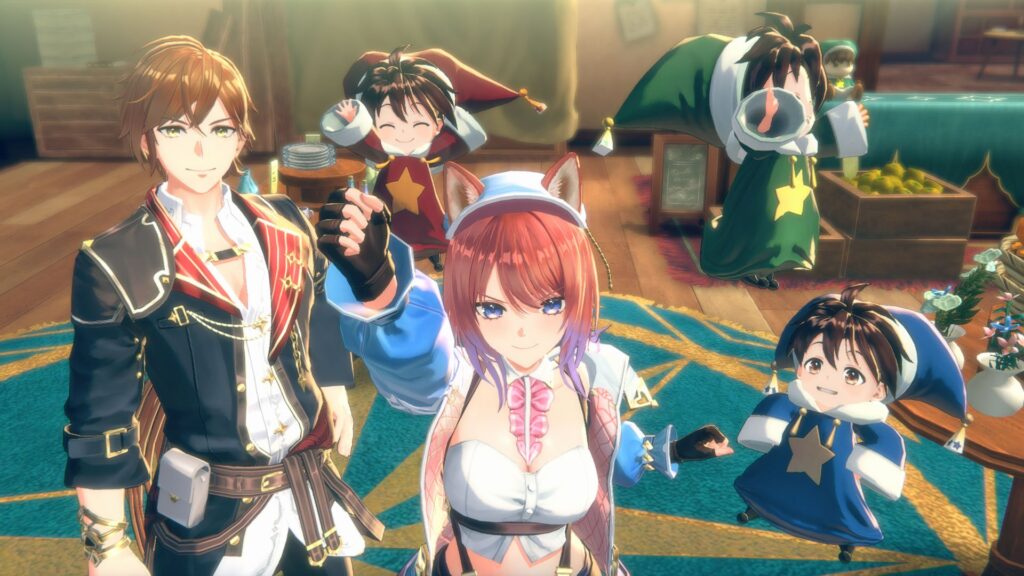I don’t know about you, but there aren’t that many big games which I’d be happy to play through all over again. Those ‘go to’ games which are suitably epic yet retain a comforting familiarity that’s still welcoming years later. The Elder Scrolls games and the golden age Final Fantasies spring to mind, but there are others which the initiated will happily slip onto this list. Kingdoms of Amalur makes for an easy recommendation.
Kingdoms of Amalur: Reckoning was a bold endeavour. Going toe-to-toe with Skyrim was a ballsy move, and it wasn’t exactly a secret who the victor of this duel was, but that doesn’t make Reckoning any less incredible. It might not have had the sales it needed to cover its hefty production costs, but it certainly went down fighting. Kingdoms of Amalur was always one of those games that you proudly play for its huge, engrossing world and captivating storyline.
It’s not unusual to find games based on various mythologies; God of War managed to jump from Greek to Norse, while Japanese mythology pops up in anything from the Warriors musou games to light-hearted visual novels. What isn’t so common, and is in fact incredibly rare, are visits to Celtic mythology; I’m talking the old-school Tuatha/Fae cycle saga rather than their later Cornish/Arthurian offspring.

Introduction
Kingdoms of Amalur: Reckoning was a 2012 action role-playing game developed by Big Huge Games and published by 38 Studios and Electronic Arts for the PlayStation 3. While selling above expectations for a new intellectual property and contributing to Electronic Arts’ fiscal profits, it commercially underperformed for 38 Studios and Big Huge Games. Two downloadable content expansions were released, but a planned sequel was cancelled with the closure of 38 Studios.
Production of Reckoning began in 2009 based on the Amalur setting created by 38 Studios founder Curt Schilling and writer R. A. Salvatore for their in-development MMORPG Project Copernicus. Using a reworked game prototype created prior to 38 Studios acquiring Big Huge Games, Reckoning was intended to introduce the Amalur universe prior to Project Copernicus but was otherwise developed as a standalone project. Several notable figures contributed to the game’s design, including artist Todd McFarlane, designer Ken Rolston, and composer Grant Kirkhope.
The lightly remastered port, now subtitled ‘Re-Reckoning’, was released in 2020 for PlayStation, and a surprising third expansion, Fatesworn, was released in 2021. The revived game and expansion were developed by Kaiko and published by THQ Nordic, which had acquired the Amalur intellectual property. Re-Reckoning features adjustments to the gameplay balance and incorporated all previous DLC features.
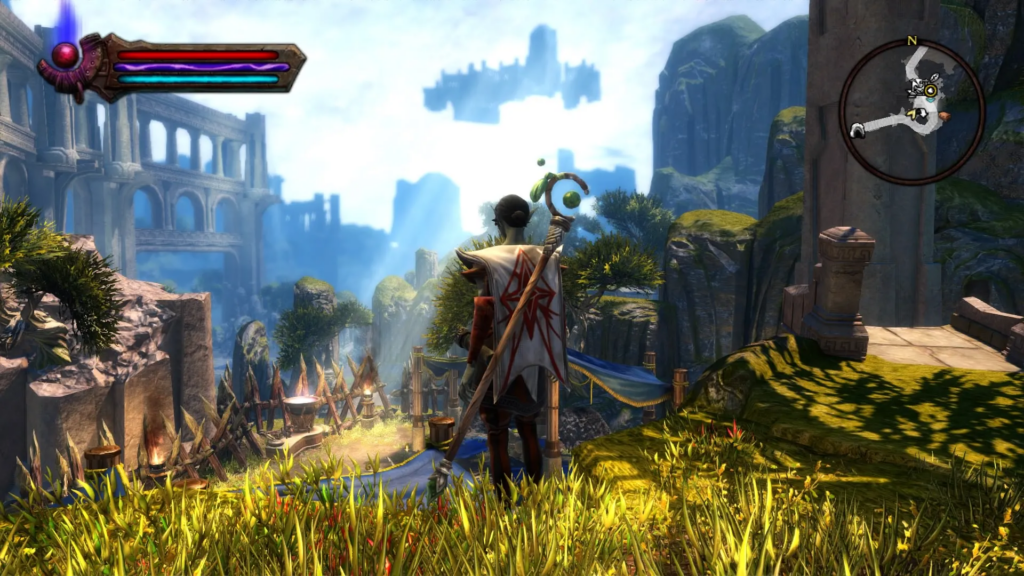
Story
Re-Reckoning is set within the world of Amalur, with the game’s events taking place across the Faelands, a land separated into two distinct territories by a great river. All things in the Faelands follow a destined path dictated by the Fate Weave, which can be read and reported by gifted individuals dubbed ‘Fateweavers’. The current age is referred to as the ‘Age of Arcana’, a time when unknown magic is beginning to manifest.
Native to the Faelands are the immortal Fae of the Summer and Winter Courts, respectively representing new life and decay. Recent arrivals are the mortal races including two tribes of humans, the Ljosalfar and Dokkalfar tribes of the Alfar, and gnomes. By the game’s opening, the mortal races and Summer Fae are threatened by the Tuatha Deohn, a hostile faction of the Winter Fae worshipping the god Tirnoch who are destined to wipe out all life in the Faelands and spread through Amalur.
The main protagonist is the Fateless One, a previously dead person brought back to life by the Well of Souls, a gnome-made device intended to resurrect the dead. Consequently, having already died, the protagonist is severed from the Fate Weave and forfeits their memories. They are aided by the gnome, Fomorous Hughes, creator of the Well of Souls. They also ally with Agarth, a warrior-turned-Fateweaver who uses alcohol to cope with the knowledge of his own death, and Alyn Shir, a beautiful Dokkalfar assassin and diplomat who knew the Fateless One in their previous life.
A much more appreciated feature of this edition is the inclusion of the first two major DLC packs bundled in. This will see the player step away from liberating the Faelands from the corrupted warlord Gadflow and his Tuatha army, to rediscover the lost Teeth of Naros region; a land still watched by the gods, with the realm’s theme shifting from Irish to Greek mythology, teaming you up with the forgotten Kollossae race.
The second DLC would be my personal favourite, with the player teaming up with the adorably quirky Captain Rast Brattigan and a group of castaways to free an island from the control of the evil undead pirate lord, Dead Kel, and his followers. It’s another welcome addition to a beloved fantasy adventure that still manages to keep you hooked throughout its 100-hour playtime.

Gameplay
Kingdoms of Amalur: Re-Reckoning is an action role-playing game in which players, taking on the role of the Fateless One, explore the fantasy realm of the Faelands. The Fateless One’s gender, appearance, and race (the human Almain and Varani groups, and the Alfar Ljosalfar and Dokkalfar tribes) are customised at the start. Each race has unique boosts to different attributes, with further passive enhancements through choosing a patron deity. Navigation is limited to the player walking or running through open areas and dungeon environments, with specific platforms for contextual jumps to lower areas, and the ability to swim through deep water.
Players complete a variety of quests related to the main scenario, self-contained quest-lines for groups and factions, non-repeatable side quests, and repeatable tasks all available from non-playable characters found through the world’s five regions. Completing quests, discovering regions of the world, and completing some in-game activities reward experience points which raises the character’s level and statistics.
The real-time combat focuses on the player using their two equipped weapons, and active skills unlocked through skill trees and activated through the player’s magic point (MP) meter. Available weapons include two sword types, two types of daggers, bows, hammers, staffs, staves and chakrams. The player can also block with a shield accessory with an enemy being stunned with correct timing, or dodge to avoid attacks. Enemies drop in-game currency and randomised loot including weapons, crafting materials and items such as potions. If the player runs out of health, the Fateless One dies and the player must restart from a previous save.
Combat is based around button-press timing, with different combinations triggering alternate attacks and more attack options unlocking as the player’s level increases. Enemies are locked to a specific level range when entering an area of the world. During combat, the cosmic energy of ‘Fate’ is rewarded if the player uses a varied range of attacks. With a full Fate meter, the player can trigger ‘Reckoning’ mode, which slows down time for everyone except the player for as long as the meter holds Fate energy. An enemy down to low health can be killed through a cinematic attack, with the player able to press a button to gain an experience boost, killing all low-health enemies in the process.
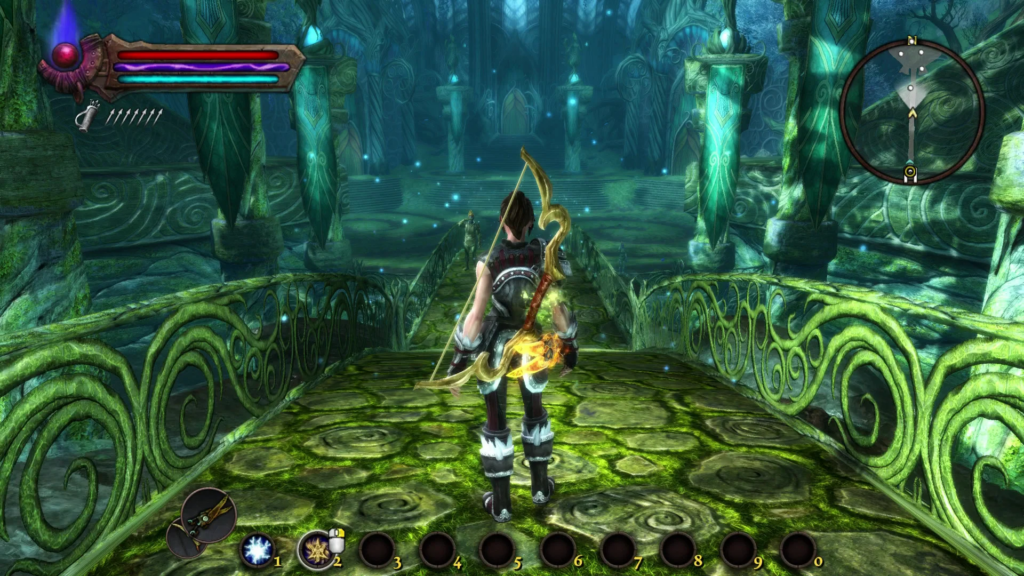
Character customization focuses on skills and enhancements unlocked through three Ability trees (melee-focused Might, stealth-based Finesse, magic-focused Sorcery), equipment, weapons, and tarot cards called ‘Destinies’. Destinies function as a character class system, with different ones unlocked as points are placed in different Ability trees and granting passive enhancements to character statistics or combat abilities. Completing Faction questlines and story sections unlock Twists of Fate, permanent Destinies granting additional passive enhancements. The character’s Skill and Ability points can be reset at any point using merchant Fateweavers, who will undo the current character build for a fee.
Outside of combat, the player has nine different passive Skills which can be increased using points gained from levelling up, tying into abilities such as crafting or talking to NPCs. These are Lockpicking, Blacksmithing, Dispelling, Detect Hidden, Persuasion, Sagecraft, Alchemy, Mercantile, and Stealth. Alongside this the player can acquire houses with access to storage for excess items.
The main changes to this enhanced version of the game come from adjustments made to the game’s difficulty since the original release could see the player over-level early in the game which made for an experience which may be too easy for many. Enemies now match the player’s level as you move from area to area, so you’ll need to take advantage of blocking and/or dodging rather than button-mashing your way through fights.
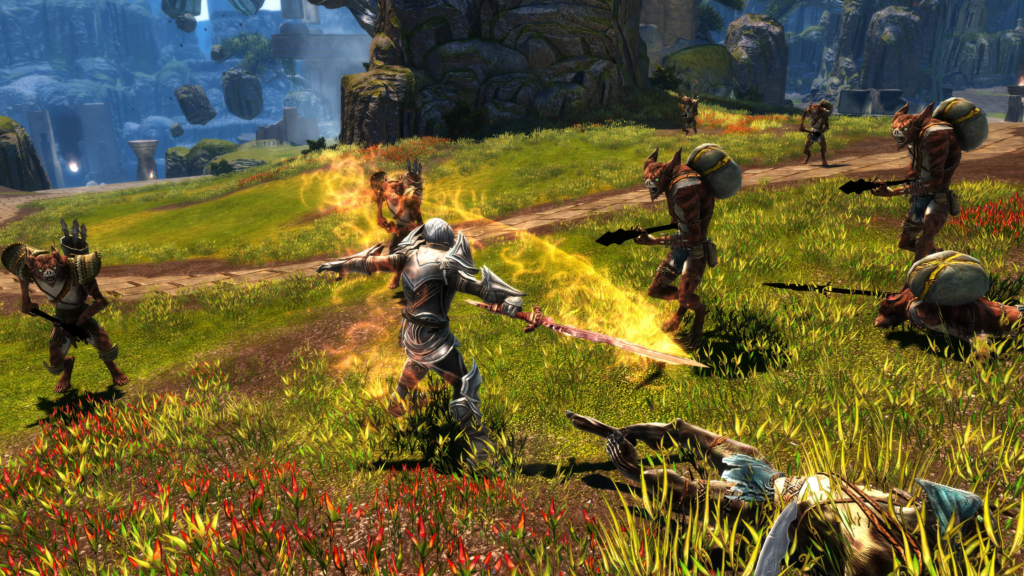
Graphics/Sound
True, Re-Reckoning isn’t much of a remaster. Visually, it’s pretty much a like-for-like port of the original game. I did notice that blacks look a little sharper now, but otherwise that’s your lot. Even the loading times don’t seem improved by the newer hardware. Fortunately, it’s a game with a beautiful Tolkien-esque art style that’s aging surprisingly well. The colours and contrasts are still as beautiful as they always were. Aesthetically, there’s a hint of gothic architecture making the world comparable to Morrowind, Oblivion and even Xbox’s Fable series rather than main rival Skyrim.
The staggering number of fully-voiced characters are praiseworthy. When choosing the large voice cast, the dev team both chose a variety of accents, and worked so the voices would not clash with either each other or their setting. They also included a wide variety of character responses for non-essential characters, contrasting against other games including Elder Scrolls titles which had become notorious for dialogue loops. It was estimated that the game had over 50,000 lines of voiced dialogue to accompany its beautifully orchestrated soundtrack.
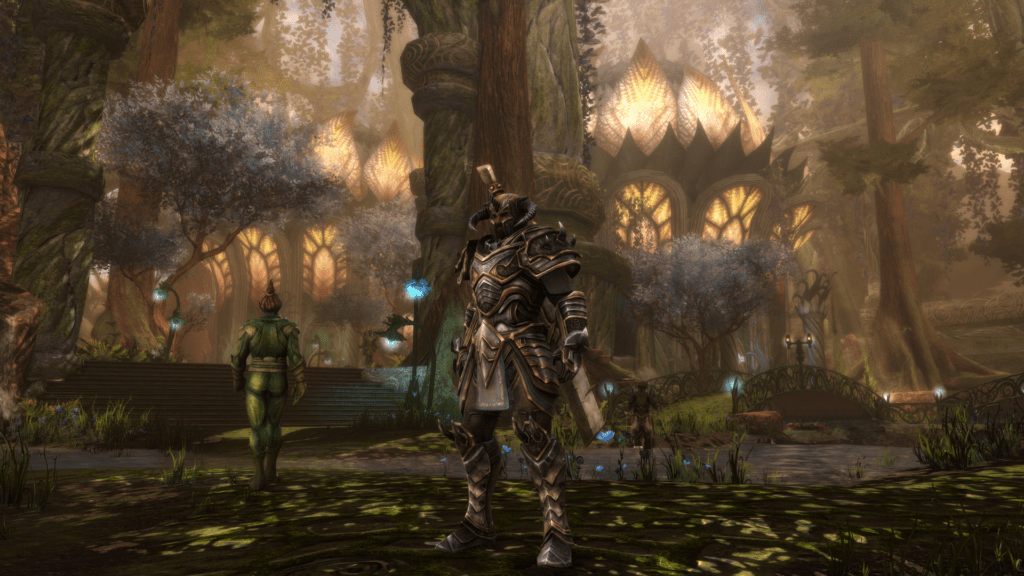
Replayability/Trophies
The game’s more adaptive difficulty would be my main reason for my lack of a platinum trophy since it requires a full playthrough on ‘hard mode’ which I wasn’t really comfortable with when compared to the refreshing ease with which I completed the original game. There were also a handful of other trophies which didn’t really appeal to me since well-timed blocks, parries and combos didn’t really suit my sorcerer-type character. It’s still a rewarding adventure, with or without a platinum to show for it.
Conclusion
The tweaks here are few and far between, and very minor when you consider what fixes are usually present in a traditional remaster. While the dev team didn’t technically say Re-Reckoning was intended to be a full remaster, they certainly didn’t deny it either, leaving many fans with higher expectations.
Sure, there’s some rebalancing going on, but it’s not exactly essential, and comes at the cost of missing some video playback bugs which resulted in some oddly timed black screens and scene stalling. Thankfully, this was promptly patched.
It’s still an unbelievable experience and I’m grateful to have the chance to enjoy it all over again, but I don’t think I’m wrong in saying the majority were expecting a little more bang for their buck. Even so, it’s nice to have a ‘complete edition’ all on one disc. It may fall short as a remaster, but as a definitive edition it’s certainly a pleasing bundle, and with a lower price tag too.
Exploring the cyclical universe of Celtic mythology, even in this twisted version of it where the roles of fantastical races can’t be so clearly defined as good or evil, is nothing short of wondrous. Every character, regardless of their importance or agenda, is so beautifully portrayed and otherworldly in a way that’s both eerie yet fascinating. What a journey.
Joys
- Incredibly beautiful storytelling with a Celtic flavour
- Aging remarkably well
- Great DLC included
Cons
- It’s not really a remaster
- Buggy video playback, thankfully fixed with patches
